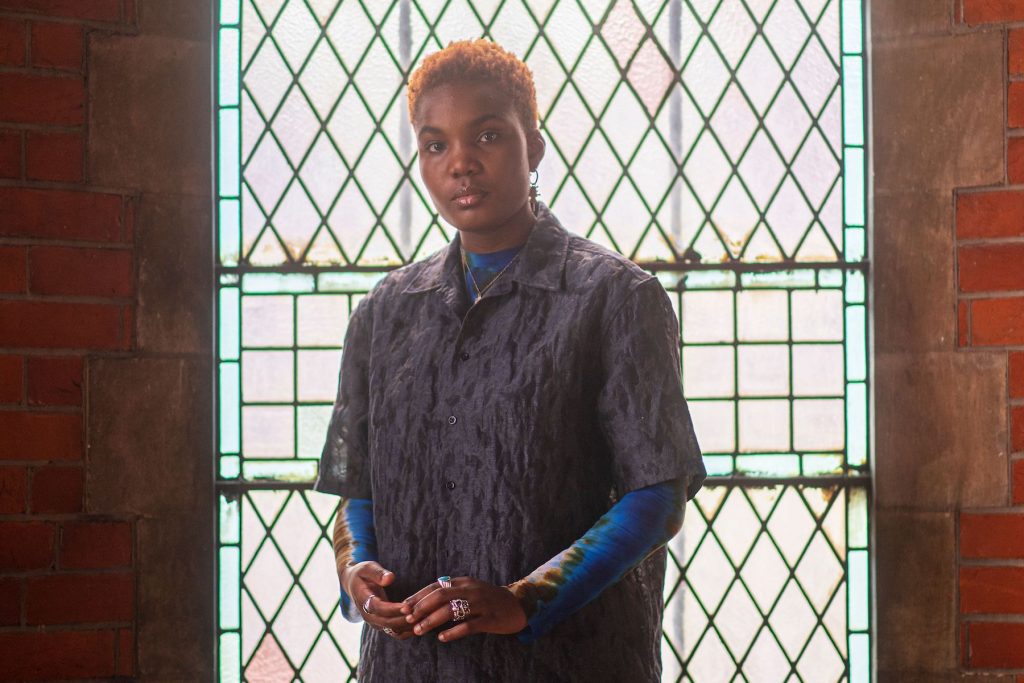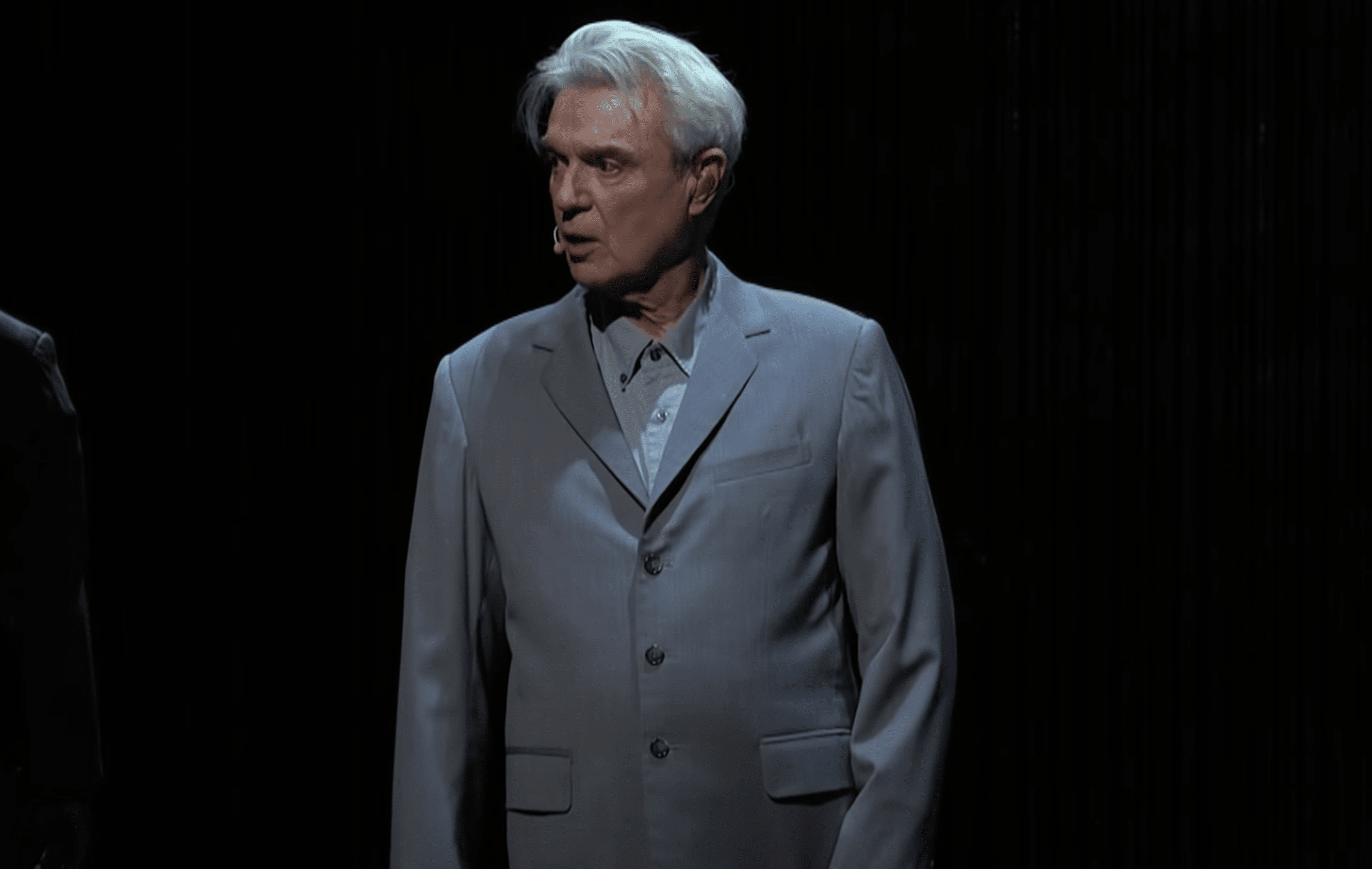
The Disappearance and Return of Stromae: ‘I Needed to Live a Normal Life’
For the last seven years, fans around the world have had one question on their minds: “Stromae, où t’es?“
That’s how long it’s been since the Belgian singer was last seen making waves around the world with his honest lyrics and electropop sound. In the U.S., many encountered Stromae’s music in high school. (“Were you really ever in French class if you never had to translate a Stromae song?” read one tweet.) For others, it was the way his songs provided commentary on gender equality (“Tous Les Memes”), the effects of social media (“Carmen”), and the Rwandan genocide that killed his father (“Papaoutai“). The success of his second album, 2013’s Racine Carrée, led him to sell out stadiums in Canada and Europe, bring out Kanye West at Coachella, and have the instrumental “Merci” featured on the Hunger Games: Mockingjay soundtrack with Lorde, Pusha T, Q-Tip, and Haim. (Yes, all on the same song.) Then, at the peak of that success, the musician born Paul Van Haver shut it down.
“I just needed to live a normal life,” Stromae says over Zoom from his cozy Brussels office after struggling to get his webcam to focus. “I needed to be inspired.”
blogherads.adq.push(function () {
blogherads
.defineSlot( ‘medrec’, ‘gpt-dsk-tab-article-inbody1-uid0’ )
.setTargeting( ‘pos’, [“mid-article”,”mid”,”in-article1″,”mid-article1″] )
.setSubAdUnitPath(“music//article//inbody1”)
.addSize([[300,250],[620,350],[2,2],[3,3],[2,4],[4,2],[640,250]])
;
});
The result of that creative break is his third album, Multitude, out March 4 — a 12-track collage of sounds from all over the world, laced with the storytelling and brutal honesty only Stromae can deliver. “People know me not as a depressing singer, but as one who loves to sing about really dark issues on dancing tracks,” he says.
After 2015, public sightings of Stromae were rare. His social media accounts went blank, he stopped releasing music (except for a one-off single in 2018, “Défiler“), and quit giving interviews. But through it all, he continued to collaborate musically with other artists behind the scenes. During his musical hiatus, he directed videos for Dua Lipa and Billie Eilish, and he provided vocals on songs by Orelsan and Coldplay. Alongside his wife and creative director, Coralie Barbier, he continued building their fashion label, Mosaert. Above all, he says, “I had the chance to get married and have a baby. And that’s something really important. Just to live, normal stuff. To tell new stories.”
It wasn’t until 2018, months after he penned the lyrics to “L’enfer” — a haunting, piano-backed single about grappling with loneliness and suicidal thoughts — that he decided it was time to think about making an album. This came after countless social media pleas from fans asking him to give the world something, anything. “It’s funny, because my wife was next to the door when I was writing the track,” he remembers. “She was touched by the song and told me that she was so happy to hear me composing again.”
That year, Stromae and his other creative director and brother, Luc Van Haver, started to work on Multitude. Stromae says the new record takes “some ingredients from everywhere in the world” and was inspired by the backpacking trips their mother took them on across South America and Africa. “Even if we didn’t have a lot of money when we were young, travel was something very important for my mother,” says Stromae. “Music also.” On the record, the Van Haver brothers intertwine stories and sounds for a mosaic of lyrical portraits.
The album opens with “Invaincu” and its sample from a Bulgarian choir featured in the 1995 manga film Ghost in the Shell. On “C’est Que Du Bonheur,” Stromae takes inspiration from Latin America’s electronic cumbia (“I’m a little bit exhausted with the reggaeton groove, to be honest,” he says with a laugh), while other tracks on the LP feature sounds from the charango, an Andean string instrument, and the two-stringed Chinese erhu.
Making the album feel cohesive was a challenge. “At the beginning, everything was a little bit too calculated,” Stromae admits. But by the end, the record ended up feeling like one complete experience, he says. Multitude also introduced a new way to work for the singer, as he made a 180-degree shift from how he recorded Racine Carrée and his 2010 debut, Cheese. “With Racine Carrée, I remember working until 7 a.m. Suffering,” Stromae says. “Now I know that I don’t need to suffer to create good songs.”
blogherads.adq.push(function () {
blogherads
.defineSlot( ‘medrec’, ‘gpt-dsk-tab-article-inbody2-uid1’ )
.setTargeting( ‘pos’, [“mid-article2″,”mid”,”in-article2″,”mid-article”] )
.setSubAdUnitPath(“music//article//inbody2”)
.addSize([[300,250],[300,251],[620,350],[2,4],[4,2],[3,3],[2,2]])
.setLazyLoadMultiplier(2)
;
});
This time, he worked on the LP “like a normal guy,” writing and making music during a typical, 9-to-5-style workday. “I can have a balanced, normal life — and still compose,” he says, adding, “To me, tour life is not inspiring. I cannot write songs on a tour bus.”
Most of the album builds on what Stromae knows best: lyrical storytelling from the point of view of a fictional character, in a style that can recall Mexican corrido. In making the record, he took inspiration from great Francophone singers Édith Piaf and Jacques Brel. “I think our job is to tell stories. That’s how I see [it],” he explains. “I play with words… It’s a balance between personal and universal. It’s important for me that people can relate to my songs. If it’s too personal, I don’t think that’s really interesting.”
“Mon Amour” follows a man as he cheats on his partner, and “every time he’s in a relationship, he fucks everything up,” Stromae explains. “Fils de Joie” is sung from the perspective of a sex worker’s son, who’s defensive of his imperfect mother. (“She’s a hero. And I will always speak of her with pride,” Stromae sings on the track.) “C’est Que Du Bonheur” was inspired by the joys and toils of parenthood, a new experience for the musician, as he sings, “if you knew how much I love you,” but also blames the child for being the reason why “we only have time to do it once a year.” Elsewhere, “La Solassitude” and “Mauvaise Journée” tackle the woes of loneliness.
Seven years away from the public eye allowed Stromae to simply live his life. And, as a result, he’s returned with a fresh taste of the musical gift he stowed away for so long. “I’m a bit anxious and happy,” he says about coming back. After his album releases, Stromae’s schedule will be packed once again with scheduled performances at Coachella, a tour across the U.S. and Canada, and an already-sold-out European tour in 2023. “To be honest, it’s just one day after another,” he says. “I have a healthy, balanced life now. I’m going to take it step by step.”




